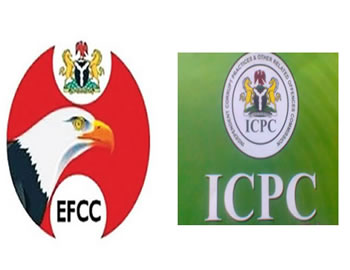The ICPC’s prosecuting counsel, Mr. Nosa Omohigbo, said investigation had been concluded and the commission had established prima facie cases in the matter and a takeover could jeopardise the chances of prosecution. Does it then not vitiate commonsense that the state as a vested party in the matter is seeking the leave of court to take a fiat to try the accused persons who are politically exposed persons and had defected from their previous political party? Judging by what is playing out in Katsina State, the purported fiat granted state attorneys-general to prosecute cases under federal laws, although within the prosecutorial powers of the AGF, needs to be reviewed. In the words of the late Justice Kayode Eso, in defining the role of the AG when delivering a leading judgment in 1988, “This is a power vested in the Attorney-General by the common law and it is not subject to review by any court of law. It is, no doubt, a great ministerial prerogative coupled with grave responsibilities.” The “grave responsibility” the late legal luminary was referring to has to do with discretion. It is indiscretion to set up anti-corruption bodies only to strip them of their prosecutorial powers and handing same to some state prosecutors with vested interests at the risk of jeopardising the fight against corruption.
But then, the Katsina scenario is just one in many cases where personal, political, ethnic and even religious sentiments have frustrated and obstructed the fight against corruption. Former President Olusegun Obasanjo, who established ICPC and EFCC, could make a case for himself that he secured the conviction of high-profile members of his government, including the then Interior Minister, Sunday Afolabi and the Inspector General of Police, Tafa Balogun. However, there were the untouchables in his administration and he himself hasn’t come clean on the Halliburton bribery scandal. The immediate past Goodluck Jonathan administration, if anything, was worse. President Muhammadu Buhari rode to power mainly on the promise to wipe out systemic corruption. True to his word, he swung into action and the anti-corruption agencies made many high-profile arrests. However, the EFCC and the Office of the Attorney General of the Federation are yet to secure a single conviction. Rather, courts keep discharging cases of corruption brought to them. When Senate President Bukola Saraki’s case at the Code of Conduct Tribunal (CCT) was literally trashed, one wondered why the CCT instituted the case in the first place when it knew it would discharge Saraki of all the 18-count charges of false assets declaration proffered against him by the Federal Government.
Another case in hand is the “grass cutter” corruption case against the suspended Secretary to the Government of the Federation, Babachir Lawal. President Buhari reluctantly ordered an investigation into the allegations of violations of law and due process made against Lawal in the award of contracts under the Presidential Initiative on the North East (PINE), along with the case involving the Director General of the National Intelligence Agency (NIA), Ambassador Ayo Oke. The president directed the suspension of the SGF and DG NIA from office pending the outcome of the investigations. The investigation was led by the Vice President, Yemi Osinbajo, and had the AGF and National Security Adviser as members. Since April, the committee has practically refused to release its report.
There are the cases of alleged mismanagement of the Paris Club loan refund levelled against Governor Addulaziz Yari of Zamfara State and the strong-worded memo from the Minister of State for Petroleum Resources, Dr. Ibe Kachikwu, to President Buhari on the actions of the Group Managing Director of the Nigerian National Petroleum Corporation, Dr. Maikanti Baru. Even with Yari’s immunity against prosecution and Baru’s feeble and arrogant counter-claim, shouldn’t investigations be carried out at least? After all, Ekiti State’s Commissioner for Finance and state Accountant General were arrested and questioned by the EFCC. What could make former Governor Orji Uzor Kalu a subject of corruption investigation when he was in the PDP, but not when he defected to the ruling APC? If the fight against corruption is perceived as a witch-hunt by the majority, it will not be won. What is sauce for the goose should be sauce for the gander. And the Katsina scenario should interest us being the president’s home state.
- Faskari is an Abuja-based lawyer






